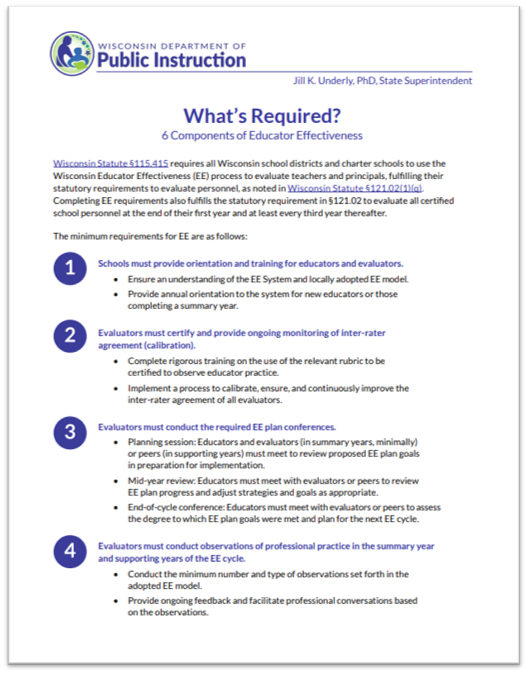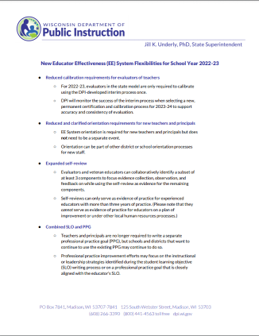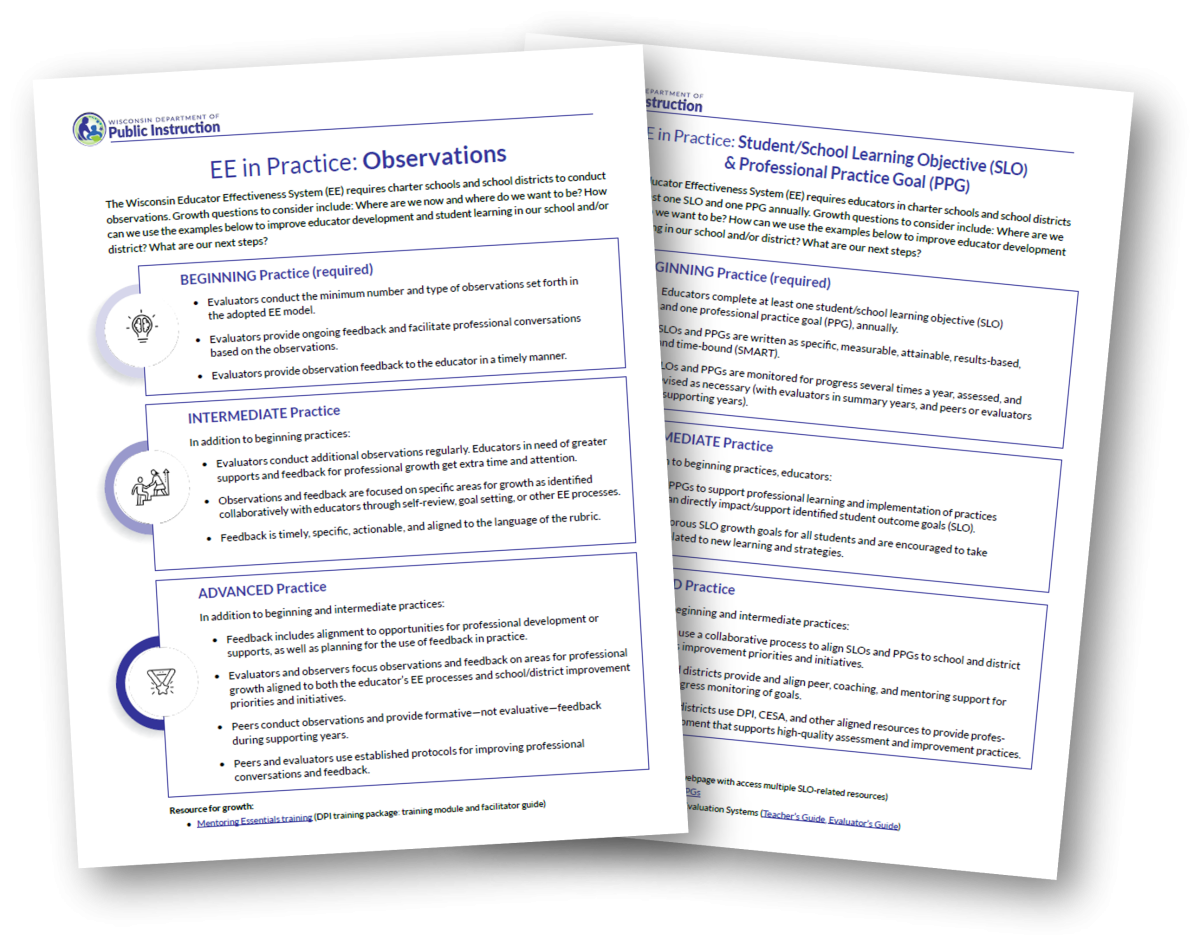The Wisconsin EE System was designed for one main purpose and use: to improve educator practice, reflection, and professional growth, which increases student learning. These resources support growth-centered implementation such as planning, assessment, management, and support of the Educator Effectiveness System within local context.
Implementation Tools
It is recommended that districts utilize a local Implementation Planning Team comprised of school and district administrators and appoint a district EE Coordinator for the team. The goal of this Implementation Planning Team should be to complete, analyze, and strategize implementation using:
Required Processes & Flexibilities

What's Required? 6 EE Processes
Brief overview of the six learning-centered processes required in the System. See the more detailed individual requirements resources on this page for descriptions of robust implementation that lead to meaningful results.

EE System Flexibilities
Available implementation options that can streamline EE activities to reduce workload and provide professional supports.

EE in Practice
Research results on the EE System linked below indicate that robust, learning-centered systemic implementation of the EE System contributes positively to schools by improving professional performance feedback and student achievement, as well as closing achievement gaps. Findings also suggest that the Wisconsin EE System improves school culture and staff retention rates.
These resources give a snapshot of beginning, intermediate, and advanced levels of implementation for each of the six EE System required processes that can strongly contribute to positive outcomes.
WI Educator Effectiveness (EE) System Policy Guide for WI Public Schools
The Policy Guide supports the implementation of EE System requirements as outlined in Act 166 as well as present local considerations related to quality implementation. Local administrators charged with EE System implementation can use the policy guide to influence timely decisions, such as scheduling to support collaboration and observations, evaluator calibration, EE conference planning, and other local considerations. Key features include:
- the identification of system implementation requirements,
- the DPI System monitoring process,
- and a policy tool which that local leadership teams (regardless of practice evaluation model) can use to self-assess and chart a course to maximize positive impacts of the System.

Implementation Supports
Contact regional CESA Support Leaders for help and training.
Online Training
There is a multitude of videos and facilitated-training materials to support knowledge of evaluation processes and rubrics for educators and evaluators.
Optional EE Support Personnel
There are roles that can be put into place locally to help to implement the EE System with integrity and fidelity, as well as strengthen a collaborative culture (e.g., System Coordinator, peer reviewers, mentors, instructional coaches, etc.). For more information: Optional EE Support Personnel

System Information
Click the links below to read more about each topic.
Who must be evaluated in the Educator Effectiveness System?
Wisconsin state law mandates the Educator Effectiveness System and applies the System only to principals and teachers. DPI has developed a flowchart to help districts determine who is required to be evaluated using the System.
Evaluator Requirements
All evaluators must hold an active administrator's license in the state of Wisconsin (Wis. stat. PI 34.064). Evaluators of teachers in state model EE districts and independent charters are required to successfully complete initial certification training in the Danielson Framework for Teaching prior to conducting observations and followed then by calibration activities once a year.
Grants
DPI administers grants that help fund the Educator Effectiveness System.
Platform for Completing Evaluation Documentation
DPI has contracted with and provided access to the Frontline Education platform, an online observation/evaluation management system. Districts & 2R charters using the DPI model may choose to utilize Frontline Education Employee Evaluation Management (EEM, formerly MyLearningPlan) or downloadable forms to document processes.
Flexibility of model used to evaluate educator practice (equivalency)